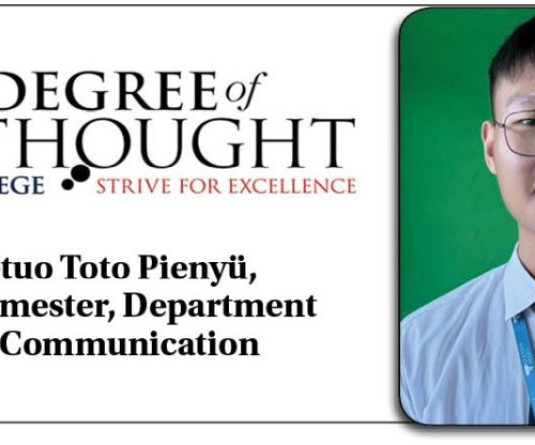
A young journalist once said, “Mobile applications with convenient presets are replacing the hard-earned or hard-learned skills,” which is becoming increasingly true as the years pass. As we increasingly rely on technological devices, which have undoubtedly enhanced our daily functioning, many would find it hard to admit that human obsolescence is another consequence of embracing technology.
The famously quoted Canadian Communication theorist and Philosopher, Marshall McLuhan, rightly asserted that one is “hypnotised by the amputation and extension of one’s own being in a new technical form”. The present academia stresses more often on the ‘extension’ aspect but not on the ‘amputation’ part. When media (or in other words, digital devices) become an extension of human senses or selves, the very absence of such media could also eventually result in amputation of the same. Well, what about an amputation not in a physical sense, but a metaphysical one – amputation of human senses or being? Does it not sound absurd? What if that is what digital culture has brought us to? You may have heard about the Silicon Valley rumour where the brains behind the giant technology companies take precautions to not indulge themselves in gadget obsessions. Being aware of the consequences of such amputation (caused by digital dominion), they, along with their close ones, are wise enough not to let themselves get absorbed in digital indulgence. While they are promoting their products, which of course are in high demand, they make sure their consumption is moderated.
Necessity is not always the mother of invention in terms of technology. It is rather the ‘artificial needs’ generated by the competitive market that propels the superfluous invention. Not all inventions are market-driven, yet it is the limitless human avarice that results in most of the new technological development, not to mention the curiosity behind the innovation. Whether or not the inventors foresee the adverse effects of each new invention, the consequences cannot be evaded. Hence, this could serve as a call to action to take precautions. Let us consider one of the common problems faced by many digital technology users, i.e., sleep-related issues or disturbed sleep cycle. Excessive screen engagement of digital citizens results in circadian rhythm disturbance. The inventors of digital screens would not have comprehended such an effect when they assembled their ideas while brainstorming the blueprint of their products.
What leads to the disturbance of a circadian rhythm is related to the secretion of melatonin (also called the hormone of darkness) in the human body. The human biological clock is also designed to function with the cycle or rhythm of nature. The melatonin hormone, a sleep-inducing element, is released in response to darkness, which usually happens after sunset. It is produced at night in the pineal gland that lies near the centre of the brain. Before electricity became a part of human life, the human body could easily recognise at dusk that the night is approaching and prepare itself to sleep, thus releasing the sleep hormone. The invention of electricity would probably give this melatonin secretion process a sort of initial cultural shock, which is followed and worsened by the emergence of digital screens. Due to continuous exposure to electric light, as well as the high-energy blue light emitted by smartphones and other screens, the brain cannot distinguish whether it is daytime or nighttime. Therefore, when the melatonin production is disrupted by the constant presence of artificial light, it leads to sleeplessness, which eventually brings along several other physical and mental health complications. This could probably give better elucidation about a mere advice to not use a smartphone during a certain time at night before sleep.
While we are embracing the various new technology inventions, we must take heed of the possible consequences before submerging ourselves into the appealing features of every device. Since an extension of self (sense) could also become an amputation of self, too, it is crucial not to neglect (and rather acquire) certain manual skills which are almost replaced by the easy use of preset facilities. Looking at our daily life experiences, the majority of the readers who go through this article may no longer memorise their family members’ mobile numbers, their bank account number or even some of their log-in IDs and passwords, so on and so forth. Since we have the option to store our information in several digital spaces, we store less information in our brains. While digital platforms make our lives easier and faster, they also incapacitate us as we rely too much on them. How much is too much when it comes to digital consumption? Well, it may not be possible to generalise for one another, but it is important to take precautions so that people do not become enslaved by such consumption. When people try out an intoxicating substance, it usually does not seem vicious at first, but by the time its viciousness is experienced, it is often too late; the same goes for digital technology. Both seem pleasant and entertaining at the beginning, but when the level of dependency rises to an uncontrollable level, the person concerned is already in need of external help. The moment digital devices consume a person more than the person consuming it, it should be considered as a high time to retreat from digital indulgence. This is not to discourage technophiles but to cheer them up for a long-term healthier digital dose.
Keeping in mind the adverse effects along with the conveniences, digital citizens can undoubtedly bridge the possible gap caused by digital discrepancy. Digital dopamine delivered by human engagement on various online activities – be it games, social networking, binge-watching, self-disclosure, etc., through various websites, can lead to increasing dependency. Unregulated indulgence in digital content often leads to unnecessary obsession. Before the discrepancy between our actual reality and virtual experience goes too far, let this be a wake-up call for the booming digital citizens to take prudent precautions in terms of digital consumption, since it could result in “the amputation and extension of one’s own being”.
Degree of Thought is a weekly community column initiated by Tetso College in partnership with The Morung Express. Degree of Thought will delve into the social, cultural, political and educational issues around us. The views expressed here do not reflect the opinion of the institution. Tetso College is a NAAC Accredited UGC recognised Commerce and Arts College. The editorial team includes Chubamenla, Asst. Professor Dept. of English and Rinsit Sareo, Asst. Manager, IT, Media & Communications. For feedback or comments please email: dot@tetsocollege.org






